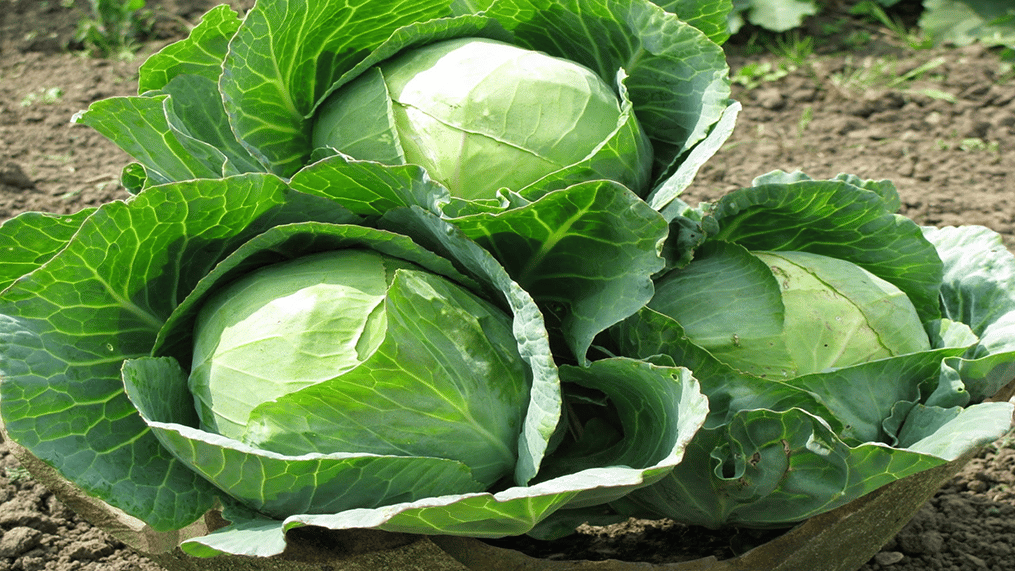- Mustard Greens
- Broccoli
- Cabbage
- Cauliflower
- Radish (Mooli)
- Possess Cancer-Fighting Compounds
- Improve Heart Health
- Support Wound Healing And Proper Blood Clotting
- Enhance Vision
- Maintain Healthy Bones
Introduction
Cruciferous vegetables sound fancy but is a botanical way of grouping together vegetables belonging to the Brassicaceae family of plants. The vegetables get their name from the Latin word ‘Cruciferae’ which means ‘cross-bearing’, due to the cross-like shape of their flowers. An easily identifiable factor of these cruciferous plants is that many of their flowers are 4-petaled, in the shape of a cross.
These vegetables have been the object of much speculation for the last 50 years, due to their multiple health benefits and a few erratic nutrition myths flying about. Vegetables like broccoli and cauliflower are adored by some kids, and detested by others, but the hatred needs to end now. These vegetables are wonderful for your kid’s health, from aiding in various important physiological functions to keeping diseases at bay. This quick guide is going to take you through the types of cruciferous vegetables in India and why they matter for your kid’s health and development.
Cruciferous Vegetables For Your Kid’s Daily Diet

Mustard Greens
Mustard greens or the leaves of the mustard plant are a healthy and tasty vegetable for your kid’s diet. And you may have been incorporating this cruciferous veggie in a variety of Indian dishes without realizing it, like sarson ka saag and saag chole. Also, mustard greens contain more vitamin C than oranges and more vitamin A than spinach, so this vegetable is a must-add to your kid’s daily diet.
Broccoli
Rich in antioxidants, fiber, vitamins C, K, iron, and potassium, broccoli can be enjoyed both cooked and raw, though doctors suggest gentle steaming for maximum health benefit. Be it protein or folate, broccoli has your kids back. Do not even worry about calories as these vegetables are sincerely low in them.
Cabbage

This highly nutritious and lightly stinky vegetable is replete with vitamins C, K, folate, fiber, and magnesium, among others. Since cabbage is low in calories as well, it is ideal to include them sauteed, as curries, in salads, or stews to encourage your kids to try them. You can even swap out the tortilla, save calories on carbohydrates, and use cabbage leaves for a wrap, before lightly roasting or grilling them. The result will be nutritious and tasty.
Cauliflower
Cauliflower is a superfood veggie, with exceptionally high nutrient content and wonderful benefits for your kid's health. The vegetable is brimming with vitamin B6, vitamin C, vitamin K, folate, choline, pantothenic acid, manganese, and fiber, among multiple others. It is also a rich source of antioxidants and helps your kid fight many diseases.
Radish (Mooli)
Popular during winters and armed with a zingy taste, radish tastes milder when cooked in curries, gravies, or stuffed into a paratha. Low on the glycemic index, radishes are rich in calcium, riboflavin, niacin, thiamin, vitamin B6, vitamin C, folate, potassium, iron, and manganese. Introduce your kids to these vegetables and make colorful charts at home with their names, nutrition, and benefits listed to educate and enrich your kid's mind and belly.
How Cruciferous Vegetables Help Your Kid’s Health?

Cruciferous vegetables have multiple health benefits. They,
Possess Cancer-Fighting Compounds
Cruciferous vegetables shelter a special group of compounds, known as glucosinolates, that help fight cancer. A diet rich in cruciferous veggies can lower the chance of multiple kinds of cancer of the pancreas, bladder, breast, lung, colon, and prostate. Cruciferous vegetables also counter the effects of cancer-causing elements found in charred meats and fish.
Improve Heart Health
Increased consumption of cruciferous vegetables, or vegetables in general, lowers the risks of cardiovascular diseases. Plus, these vegetables are chock full of nutrients that will keep your kid’s heart happy and healthy.
Support Wound Healing And Proper Blood Clotting
Cruciferous vegetables are rich sources of vitamins C and K. While the former improves iron absorption, which in turn promotes the formation of healthy blood cells, and promotes wound healing, the latter enhances blood clotting and repair. As a result, cauliflower and cabbage are constantly suggested by health professionals for patients to heal faster.
Enhance Vision
Cruciferous vegetables are a good source of vitamins A and C, both aiding and improving vision in kids. Therefore, it is ideal to include at least 1 to 1.5 cups of cruciferous vegetables into your kid’s daily diet to counter the effects of extensive screen time on their eyes.
Maintain Healthy Bones
Cruciferous vegetables are full of calcium and vitamin K, both of which are essential for bone formation, healthy growth, density, and maintenance. Eating these vegetables also reduces your kid’s risks of having a fracture as their bones will be strong enough to withstand falls, while their brains will be sharp enough to avoid them.
Conclusion
Cruciferous vegetables should be a daily part of your kid’s diet, according to the seasonal availability of certain vegetables. Since these veggies are full of antioxidants and anticancer properties, they may be able to counter the harmful effects of modern lifestyle on your kid’s health to an extent.
Kaushiki Gangully is a content writing specialist with a passion for children's nutrition, education, and well-being. With more than five years of writing experience and a science-based background, she provides nuanced insights to help families raise happy, healthy kids. Kaushiki believes in making learning and healthy eating fun, empowering parents with practical, easy advice.
The views expressed are that of the expert alone.
The information provided in this content is for informational purposes only and should not be considered a substitute for professional medical advice, diagnosis, or treatment. Always seek the advice of your physician or another qualified healthcare provider before making any significant changes to your diet, exercise, or medication routines.
References
https://healthydietindia.com/cruciferous-vegetables/
https://iapindia.org/pdf/Ch-044-Nutrition-5-12-y-IAP-Parental-Guidelines-28112021.pdf
https://www.nin.res.in/downloads/DietaryGuidelinesforNINwebsite.pdf
















